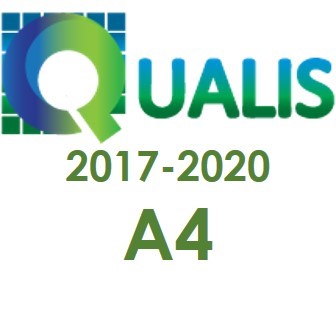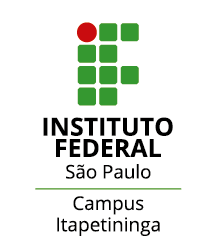A inserção das tecnologias digitais no currículo do ensino médio/secundário
Brasil e Portugal
Paraules clau:
Tecnologias digitais. Currículo. Ensino-aprendizagem. Ensino médio.Resum
O currículo e as tecnologias digitais no campo da educação têm sido, nos últimos anos, pontos de tensões entre professores/as, gestores/as das políticas educacionais e também entre estudantes. A inserção das tecnologias digitais no contexto do Ensino Médio é uma demanda pautada desde o início dos anos 2000, e perpassa tanto os conhecimentos e habilidades necessários para a vida societária do século XXI, como também envolve as formas interativas e comunicacionais que circunscrevem as culturas da juventude. Este texto tem como objetivo analisar o papel da inserção das tecnologias digitais no currículo do Ensino Médio/Secundário em contextos culturais e educacionais distintos, quais sejam, Brasil e Portugal. A discussão ora em tela é resultado de uma pesquisa de Doutorado em Educação realizada na Universidade do Estado de Santa Catarina (UDESC), cujo estudo de cunho qualitativo, desenvolve análise pós-crítica que toma como unidade de análise documentos oficiais e curriculares que orientam a política educacional nos dois países. Utilizamos como aporte teórico os estudos de Veiga Neto (2002), Rodriguez (2006), Almeida e Valente (2011), Macedo e Macedo (2012), Costa (2016), dentre outros. A pesquisa nos permite afirmar que as tecnologias potencializam o ensino e se configuram, no micro espaço que é a sala de aula, em práticas pedagógicas que estimulam os estudantes a analisar e conhecer o espaço onde vivem. Podem também contribuir para influenciar nas distintas dimensões socioculturais da vida de cada um e de todos os adolescentes e jovens, no trabalho profissional e no aperfeiçoamento e qualificação da ciência.
Descàrregues
Referències
ALMEIDA, M. E. D. de.; SILVA, M. G. M. da. Currículo, tecnologia e cultura digital: espaços e tempos de web currículo. In: Revista e-curriculum. Programa de Pós-Graduação em Educação: Currículo. Politécnica. Universidade Católica de São Paulo. São Paulo, v. 7, n. 1, abr., 2011.
ALMEIDA, M. E. D. de.;. VALENTE, J. A. Tecnologias e Currículo: trajetórias convergentes e divergentes. São Paulo: Paulus, 2011.
BRASIL. Diretrizes Curriculares Nacionais da Educação Básica. Ministério da Educação. Brasília: MEC, SEB, DICEI, 2013.
COCKELL, M. Ciberletramento: multimídia multimodalidade como propostas de letramento. Revista Soletras, Rio de Janeiro, v. 9, n. 17, p.81-88, janeiro/junho – Supl. São Gonçalo: UERJ, 2009.
COSTA, F. A. Razões para o fraco uso dos computadores. Revista Diálogo Educacional, Curitiba, v. 4, n.12, p.35-47, maio/ago. 2004.
COSTA, F. A. et.al. As TIC na Educação em Portugal. Porto: Editora, 2007.
COSTA, V. M.; WORTMANN, L. M.; BONIN, I. T. Contribuições dos Estudos Culturais: às pesquisas sobre currículo – revisão. Currículo sem Fronteiras, v. 16, n. 3, p. 509-541, set./dez. 2016.
FERNANDES, S. Fundamentos para Educação Especial. Curitiba: Intersaberes, 2013.
LÉVY, P. Cibercultura. São Paulo: Ed.34, 2000.
LIMA, R. I. de; TONINI, I. M. Na sala de aula: a África de meus alunos. In: CASTROGIOVANNI, A. C.; TONINI, I. M.; KAERCHER, N. A.; COSTELLA, R. Z. (Org.). Movimentos para ensinar geografia-oscilações. Porto Alegre: Editora Letra 1, 2016.
LOPES, A. C.; MACEDO, Elizabeth. Teorias do currículo. São Paulo: Cortez, 2011.
MACEDO, R. S. MACEDO, S. M. Currículo: Implicações Conceitos. In: RAMAL, A.; SANTOS, E. O. dos (Org.). Currículos – teorias e práticas. Rio de Janeiro: LTC, 2012.
PORTUGAL, Programa Curricular do Ensino Secundário. Secretaria da Educação básica. Portugal: Ministério da Educação/Direção geral da Educação, 2017.
RODRIGUEZ, V. M. A. Las nuevas tecnologias aplicadas a la educación. Espanha: Servicio de Publicaciones de la Universidad de Cádiz, 2006.
SILVA, A. M. M. et al. Educação Inclusiva e Direitos Humanos: perspectivas contemporâneas. São Paulo: Cortez, 2015.
SILVA, M. R. da. Perspectivas curriculares contemporâneas. Curitiba: InterSaberes, 2012a.
SILVA, T. T. da. A produção social da identidade e da diferença. In: SILVA, T. T. da (Org.). Identidade e diferença: a perspectiva dos estudos culturais. Petrópolis: Vozes, 2000.
VEIGA-NETO, A. Cultura e currículo. Contrapontos, a. 2, n. 4, p. 43-51, jan./abr, 2002.
Descàrregues
Publicades
Com citar
Número
Secció
Llicència
Drets d'autor (c) 2019 Revista Internacional de Formação de Professores

Aquesta obra està sota una llicència internacional Creative Commons Reconeixement-NoComercial-SenseObraDerivada 4.0.



 Este trabalho está licenciado sob uma licença
Este trabalho está licenciado sob uma licença 